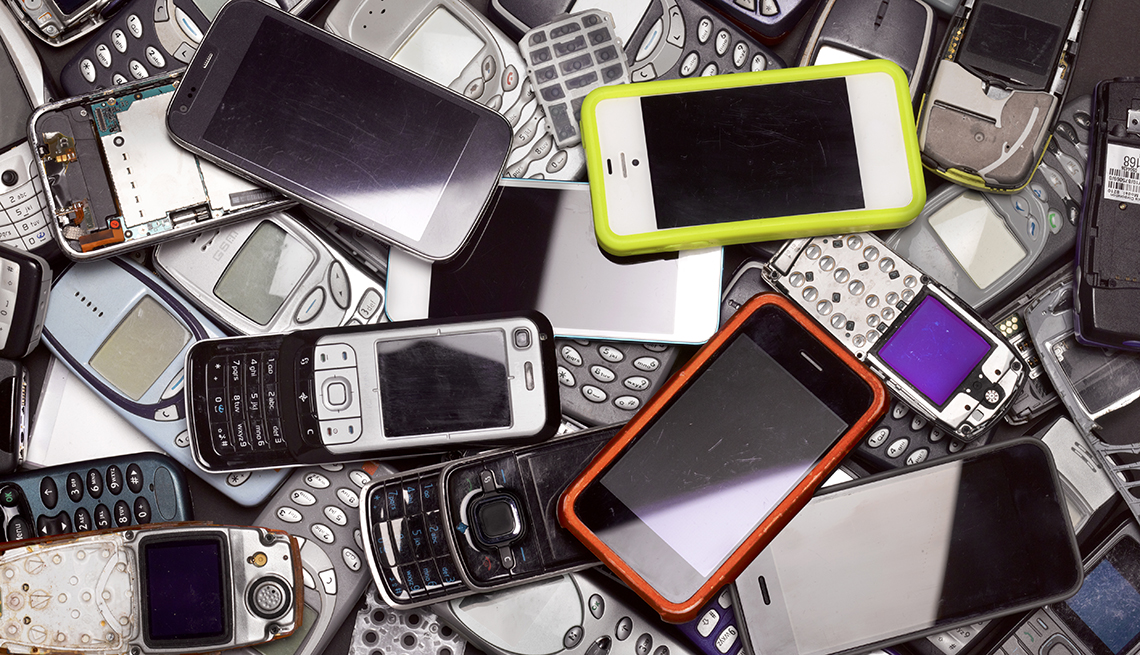
- Select a language for the TTS:
- UK English Female
- UK English Male
- US English Female
- US English Male
- Australian Female
- Australian Male
- Language selected: (auto detect) - EN
Play all audios:
“My mom had a KitchenAid dishwasher for at least 20 years. I can’t get one, even the high-end brands, to last more than five years before something electronic goes out, and the repair is 50
percent or more of a new one,” says Claire Lematta, a freelance grant writer in Portland, Oregon. Anne Ward replaced her 20-year-old dishwasher recently after it started not working so well.
“We noticed immediately that the new one was more cheaply made, the rack is far less sturdy, and now we strongly doubt it will last half as long,” says the chief executive of CircleClick, a
Silicon Valley digital marketing firm. Ward also has considered replacing the washer and dryer she bought about a decade ago for more energy-efficient models with advanced tech features.
“But several people told me if I upgrade them, the new machines will mostly have plastic parts,” she says. “Plastic parts don’t last as long. Although they’re not top of the line, these
older appliances are reliable, and so we won’t upgrade them until we have to.” EMOTIONAL VS. PHYSICAL DURABILITY Design professor Chapman approaches the subject from two perspectives. First
there’s “physical durability,” which is what happens when something breaks or deteriorates. Then there’s “emotional durability” — the product is still functioning fine, but you’ve either
fallen out of love with it or become distracted by something new. “In some ways, you could say, ‘Why do they keep coming out with new phones?’ But then you could also say, ‘Why do we keep
buying them?’ ” says Chapman, whose recent book, _Meaningful Stuff: Design That Lasts,_ investigates why we throw things out that still work. People may convince themselves to replace their
phone because a new one is faster. “Why does that matter to you?” Chapman asks. “What, do you work at NASA or something? Even the supposedly technical failures or deficiencies are often not
really problems. But we’ve been trained to believe that they are.” For folks who do hold on to things longer, “it almost feels like an act of protest or disobedience, because it’s just so
unconventional to do that,” Chapman says. ABILITY TO UPDATE SOME DEVICES EXTENDED As part of the S22 product launch, Samsung announced that select Galaxy phones will be supported through
four generations of Android operating system upgrades, up from three generations, and five years of security updates. Samsung’s smartwatches will get four years of software updates. It
“ensures millions of Galaxy users have access to the latest features for security, productivity, better usability and more, for as long as they own their device,” Samsung said in a release.
For its part, Apple’s latest operating system for iPhones, iOS 15, is compatible with devices dating as far back as iPhone 6s handsets, which debuted in 2015, though not every feature works
on the older devices. How long you can expect your devices to last may boil down to a matter of perspective. “I have a clock radio my family purchased in 1982,” says Lisa Hitt of Northern
Virginia. “Still works, still in use. I doubt if any similar device purchased today will still be in use in 40 years.” _Edward C. Baig is a contributing writer who covers technology and
other consumer topics. He previously worked for _USA Today, BusinessWeek, U.S. News & World Report_ and _Fortune_ and is the author of _Macs for Dummies_ and the coauthor of _iPhone for
Dummies_ and _iPad for Dummies_._ Tips to Maximize Battery Life




